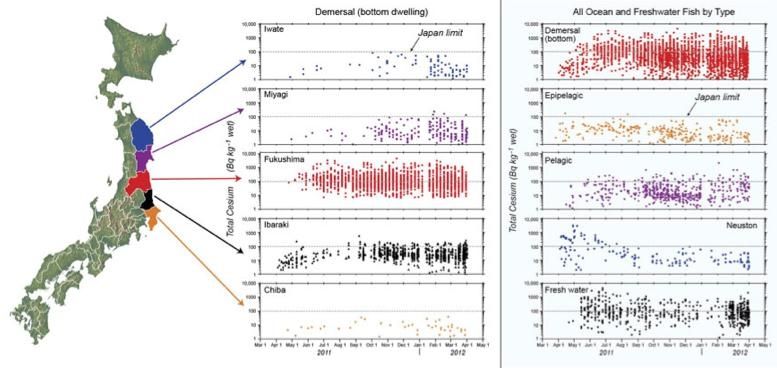A recent article in Science Daily reported on efforts to measure Cesium-137 and Cesium-134 in bottom dwelling fish off the east coast of Japan to understand the lingering effects and potential public health implications. As the largest accidental release of radiation to the ocean in history, it is not surprising that many demersal fish are found above the limits for seafood consumption. What is more significant is that the contamination in almost all classifications of fish are not declining — suggesting that contaminated sediment on the seafloor could be providing a continuing source. This raises a concern that fallouts from any further nuclear accidents would aggregate over time.
One would question if the IAEA is taking a strong enough position on the permitted location of nuclear power stations. It perplexes me that the main objections to Iran attaining nuclear power are strategic/military. Whilst Iran is not at risk to the threat of tsunamis as Japan is, Iran is one of the most seismically active countries in the world, where destructive earthquakes often occur. This is because it is crossed by several major fault lines that cover at least 90% of the country. How robust are nuclear power stations to a major quake? The IAEA needs to expand its role to advise countries on what regions it would be unsuitable to build nuclear power stations — such as Iran and Japan. Otherwise we are risking a lasting environmental impact to eventually occur — it is only a matter of time.
How the Diablo Canyon nuclear plant, which sits just miles away from the notoriously active San Andreas fault was allowed to be located there let alone operate for a year and half with its emergency systems disabled (according to a 2010 safety review by the federal Nuclear Regulatory Commission). It seems as if there’s a missing link worldwide between the IAEA and regional planning authorities. Or perhaps it is simply down to responsible government.

Impact of Hurricane Sandy on east coast nuclear power plants -
http://www.usatoday.com/story/news/nation/2012/10/30/nuclear-reactors-sandy/1669839/
http://my.firedoglake.com/gregglevine/2012/10/30/superstorm-sandy-shows-nuclear-plants-whos-boss/